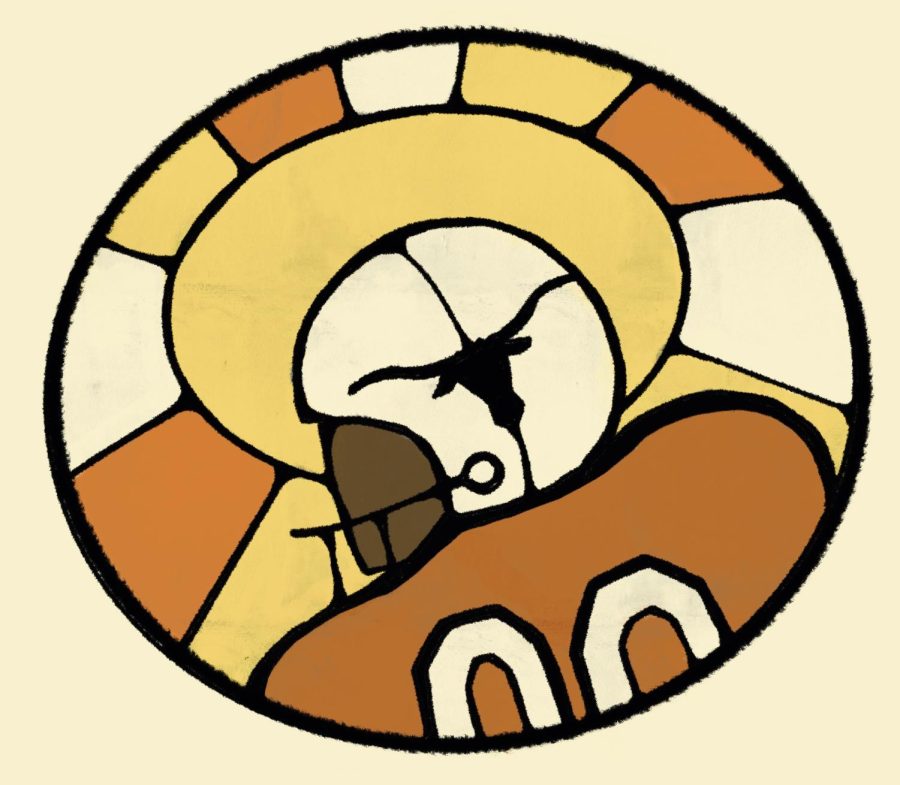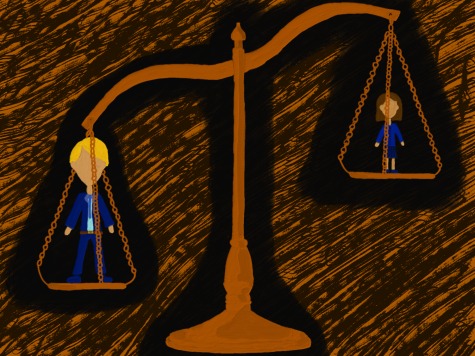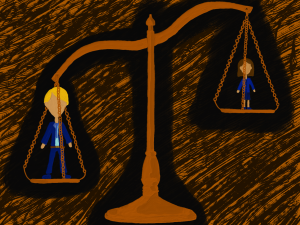UT football is a religious act
March 7, 2023
According to a recent Gallup survey, the percentage of Americans identifying as ‘non-religious’ has increased more than 10 times since the 1950s. Meanwhile, the percentage of those who identify as Protestant Christians, America’s largest religious denomination, has almost halved. Today, 31% of Americans never attend church or synagogue.
In contrast, 36% of Americans report watching college sports at least once a month. As sports replace participation in institutional worship, our fascination with Texas Football is rooted in a desire to satisfy a deeply religious impulse.
Attendees of Texas football games will often observe practices like ritual drunkenness, ceremonial chants and superstitious hand gestures. At the beginning of plays, UT fans will ‘hook ‘em’ in solidarity, as if to project good luck to our team on the field.
As human dimensions of organizations senior and Silver Spur Jack Putman said, “Half the stadium’s yelling ‘Texas’ and the other half is responding with ‘Fight.’” Like any traditional mass, our chants serve to create a sense of unity.
According to Bruce Wells, a professor in UT’s department of Middle Eastern studies, bulls were commonly used in the ancient Near East to depict the qualities of revered deities. Because bulls were the driving force behind agriculture, they were often associated with power and virility. Similarly, Bevo embodies the powerful spirit of UT, worthy of our love and honor.
Putman also said that Texas wide receiver Jordan Whittington will often talk to Bevo before each game as a superstitious act.
“Every game he’s like, ‘I’m gonna come see you after I score a touchdown,’” said Putman.
Naturally, our gametime rituals also involve hostility toward the other team and their supporters. This is typically verbal, but on multiple occasions I’ve experienced flushed-face fans getting into physical scuffles with rivals. This level of passionate outrage is comparable to the scapegoating rituals of the ancient Israelites, during which priests would cast all the annual sins of the people onto a single goat. The people then spat on and cursed the goat as it was led into the wilderness, taking the evil out of the camp with it.
Our ‘othering’ of rival fans accomplishes a very similar function to those scapegoating rituals, namely, the cohesion, strengthening and preservation of our collective identity. What once worked for the Israelite nation continues to work for the burnt orange nation. Simply being able to point and scream at who we are not gives us a more real vision of who we are.
Ultimately, football appeals to a deeply primal desire within people. It creates social boundaries where there might not otherwise be. It offers stories of superhuman strength and mental endurance reminiscent of biblical prophets and saints.
“What does it satiate?” Dr. Wells said. “I think rising above our limitations in some fashion, and being part of something bigger than ourselves.”
In its proper place, football is a beautiful thing. But concern is warranted when it becomes the primary religious outlet in our increasingly non-religious society. The ‘spirit’ embodied by fans can take on a degree of indulgence and hostile ‘us vs. them mentality,’ which conflicts with virtues like meekness, love and self-control.
The spiritual experience of the stadium is different from the solemn experience of the cathedral. It is more short-lived, perhaps for this reason.
Martin is an advertising and radio-television-film junior from Rockwall, Texas.











